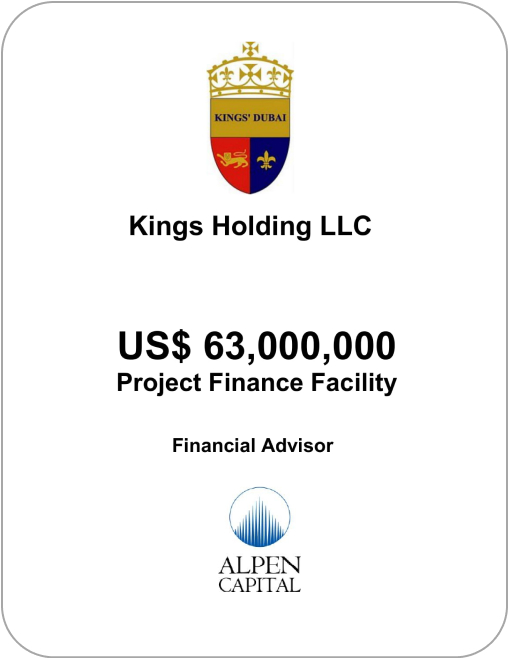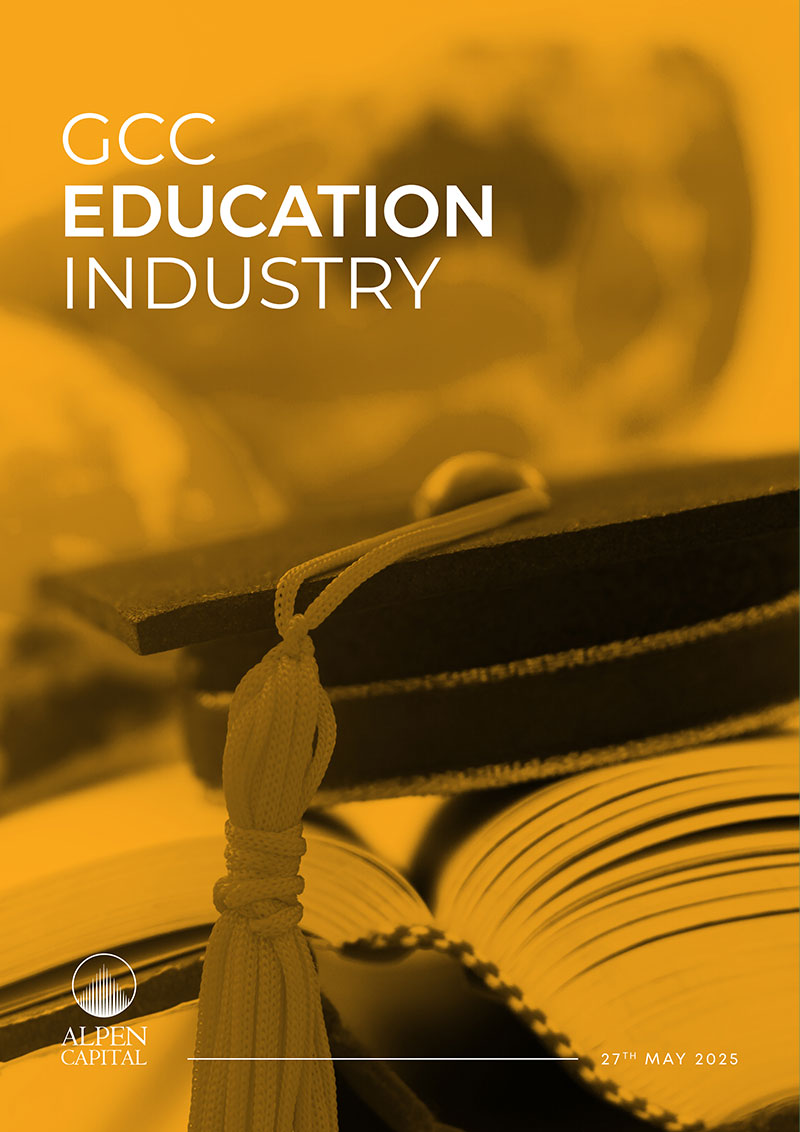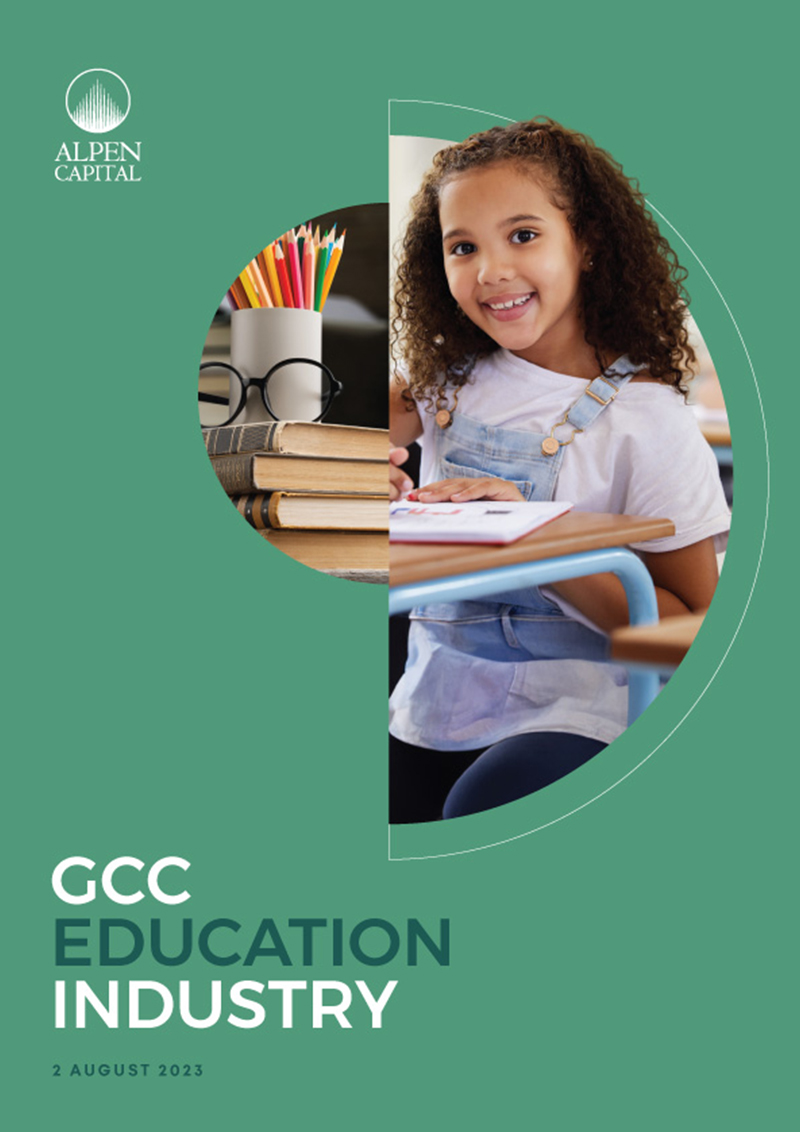The GCC education sector is undergoing rapid transformation, driven by government-led reforms, increased private sector participation, and accelerating digital innovation. Demand for private education continues to rise, supported by sustained economic growth, a growing population, rising affluence, and a strong preference for globally recognised curricula. The sector offers a strong growth outlook, creating substantial opportunities for both regional and international education providers to establish or scale their presence in a growing market.
Alpen Capital’s comprehensive industry research reports on the education sector provides in-depth analysis and forecasts for the sector, as well as examines recent trends, growth drivers and challenges facing this dynamic segment. Additionally, the report profiles select education operators in the region.
Featured Report
GCC Education Industry Report 2025
According to Alpen Capital, the total number of students in the GCC education sector is projected to increase from 14.0 million to 15.5 million at a CAGR of 2.1% between 2024 - 2029. Among the various segments, the pre-primary segment is expected to witness the fastest growth, with student enrolments projected to increase at a CAGR of 2.7% between 2024–2029. The tertiary segment is projected to expand steadily, with a CAGR of 2.1%, along with the primary and secondary segments which are anticipated to grow at CAGRs of 2.0% and 2.1%, respectively, over the forecast period. The number of K-12 students in private schools are expected to grow at a slightly faster pace of 2.3% CAGR, as compared to public schools which is forecasted to increase at a CAGR of 2.0% between 2024 – 2029.
Saudi Arabia is expected to remain the largest education market, accounting for 64.6% of the region’s total student enrolments by 2029. In terms of annualized growth, Oman is projected to lead with a CAGR of 3.3% during the 2024–2029 period, followed by Bahrain at 2.4%, and the UAE and Qatar, both at 2.2%. The demand for schools across the GCC region is expected to rise at a CAGR of 1.4% during the forecast period, requiring an addition of more than 2,800 schools by 2029.
Select Transactions

Browse Latest Articles
Let's Connect
Alpen Capital provides M&A and financial advisory services to operators and investors in the GCC’s education sector to broaden their geographic reach, increase market share and improve operational efficiency.














